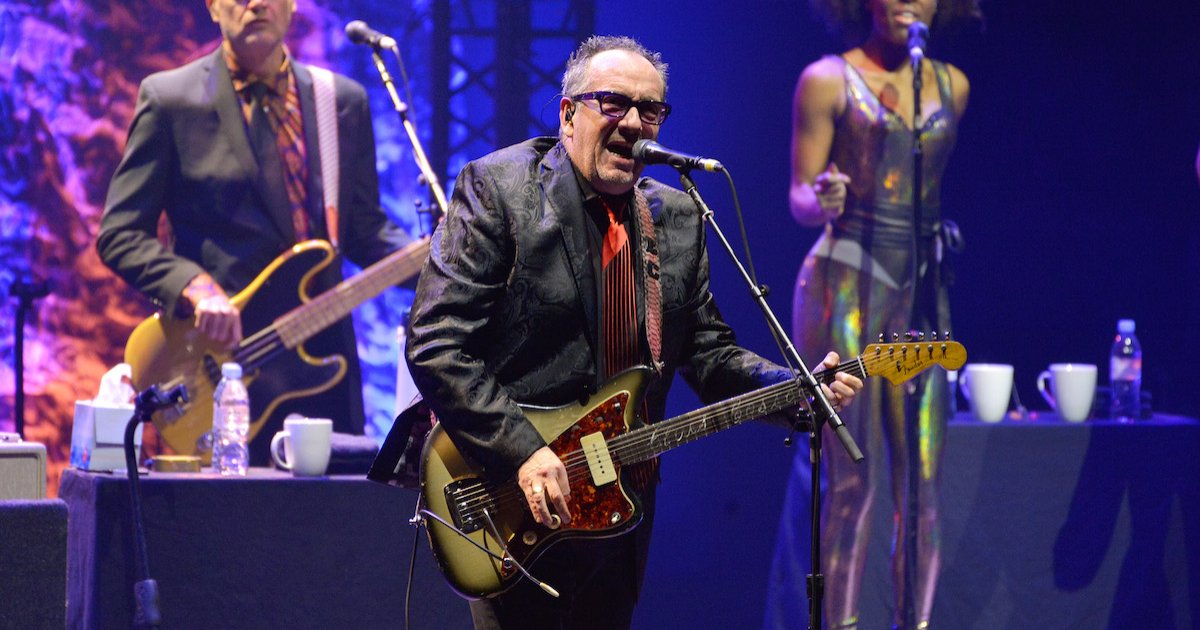Healing Power of Music
- Singer-songwriter Elvis Costello, 66, went through prostate cancer surgery in 2018, and was forced to postpone performances for a few months. He recently released his new album Hey Clockface in October.
- Prostate cancer is the most common cancer in men, and begins in the prostate gland, which is located between the rectum and bladder.
- Surgery is not the only treatment option for prostate cancer. It’s often up to the patient to decide whether they want to go through surgery or radiation, especially since patients may see the same result.
Costello was diagnosed with prostate cancer in March 2018, when his doctors found “a small but very aggressive” tumor. In May of that year he chose to have surgery to treat the disease. After the operation, Costello planned to continue his European summer tour which was scheduled to kick off in June, but had to postpone the performances in order to recover fully. In a statement to fans, he says he’s lucky his doctors were able to find the tumor so quickly, and now encourages all men to check in with their doctors regularly especially if you sense something is wrong.
Read More
Since his prostate cancer battle, Costello still keeps releasing new tunes for all of us to enjoy. In some cases, music can be an incredible tool in healing after tough times, and the perfect coping mechanism. Judging by Costello’s October album release Hey Clockface, he’s not wasting one moment to continue pursuing his passions and keep us entertained.
“I think if you listen to these songs, it’s an emotional experience for me to consider some of the mistakes, some of the cruelties that you’re inevitably going to write songs about if you’ve got your eyes open and your heart in the matter,” Costello told NPR about the new album.
Prostate Cancer Surgery: Overview
Prostate cancer is the most common cancer in men, and begins in the prostate gland, which is located between the rectum and bladder. While doctors recommended Costello go through surgery for his prostate cancer, that’s often not the only treatment option for men when facing a diagnosis. There’s still a debate among doctors as to whether surgery or radiation is the better option. Of course, this can depend on a case-by-case basis, but some research has shown that patients may see the same results whether they choose to have radiation or surgery.
Related: Second (& Third) Opinions Matter When Deciding Between Surgery or Radiation
This being the case, it's often up to the patient to decide which treatment option they'd like to pursue especially if the disease is caught early. The goal of surgery is to completely remove any evidence of cancer, and the process can take up to five hours along with a stay in the hospital. Some men opt for radiation over surgery in order to avoid side-effects that come with the procedure such as temporary leakage or erectile dysfunction. Since the prostate is in a delicate area under the bladder and alongside nerves, and these nerves control erections, the procedure must be done very precisely in order ensure there are no long-term sexual side-effects.
Dr. Stephen Freedland breaks down how long prostate cancer surgery side-effects can last
Like any treatment, side-effects are often inevitable. However, these particular side-effects are typically temporary. “[One of the] challenges with surgery is you have two nerves that give you an erection," Dr. Stephen Freedland, Director of the Center for Integrated Research in Cancer and Lifestyle at Cedars-Sinai told SurvivorNet in a previous interview. "Those nerves run right along the side of the prostate. So as we remove the prostate, our goal is not to damage those nerves, but they get pulled. They get tugged. They don't work right, perfectly, right after surgery, but again, with time, that does tend to get better."
Music Can Be Healing
For Costello, making music may have been a way for him to cope during his cancer recovery. In fact, studies have shown that art therapy such as music, painting, and dancing can really lift up spirits during and after treatment. It's not uncommon for those battling cancer to experience emotions such as anger, confusion, and sadness. So, the opportunity to express these emotions through artistic outlets can be extremely helpful music is one of those outlets.
Two-time cancer survivor, Bianca Muniz, knows the power of music all too well especially since she turned to music as an outlet during her experience with cancer. Her cancer journey began at just 11 years old when she was diagnosed with ovarian cancer. Then, at 22 years old, she was diagnosed with breast cancer. Bianca says that undergoing numerous different treatments did have an impact on her singing voice, but she never let that get in the way of her love of performing, and cancer actually served as a muse for creating new music.
Related: Glam Rock Chemo: How Air Guitar Got This Survivor Through Cancer Treatment
“This experience has had two different effects on my creativity and my music, so I’ve gotten a lot of inspiration from it,” Bianca told SurvivorNet in a previous interview. “But also the side effects of treatment, of chemo, and surgery have definitely had a little bit of a negative effect on my voice. Then again, I love performing. I always feel happy after I’ve performed.”
Two-time cancer survivor Bianca Muniz turned to music during her cancer journeys
Learn more about SurvivorNet's rigorous medical review process.


